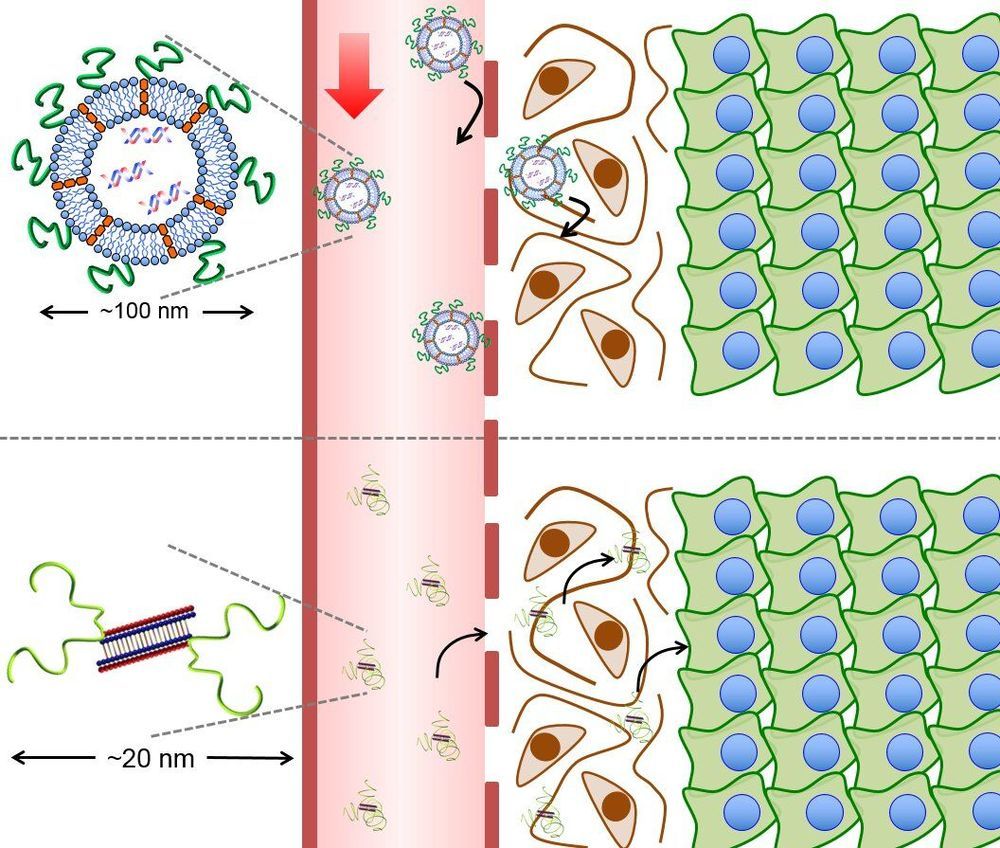In a recent study in mice, researchers found a way to deliver specific drugs to parts of the body that are exceptionally difficult to access. Their Y-shaped block catiomer (YBC) binds with certain therapeutic materials forming a package 18 nanometers wide. The package is less than one-fifth the size of those produced in previous studies, so it can pass through much smaller gaps. This allows YBCs to slip through tight barriers in cancers of the brain or pancreas.
The fight against cancer is fought on many fronts. One promising field is gene therapy, which targets genetic causes of diseases to reduce their effect. The idea is to inject a nucleic acid-based drug into the bloodstream—typically small interfering RNA (siRNA)—which binds to a specific problem-causing gene and deactivates it. However, siRNA is very fragile and needs to be protected within a nanoparticle or it breaks down before reaching its target.
“siRNA can switch off specific gene expressions that may cause harm. They are the next generation of biopharmaceuticals that could treat various intractable diseases, including cancer,” explained Associate Professor Kanjiro Miyata of the University of Tokyo, who jointly supervised the study. “However, siRNA is easily eliminated from the body by enzymatic degradation or excretion. Clearly a new delivery method was called for.”
